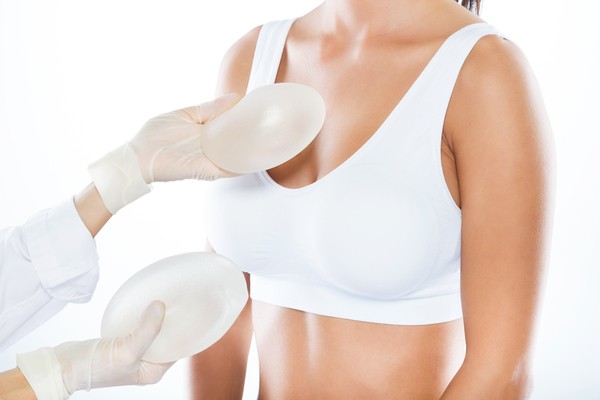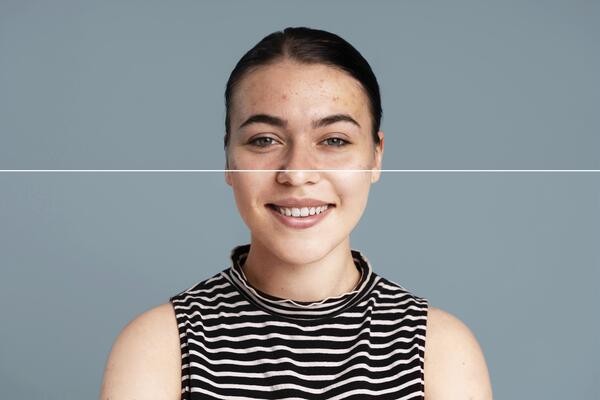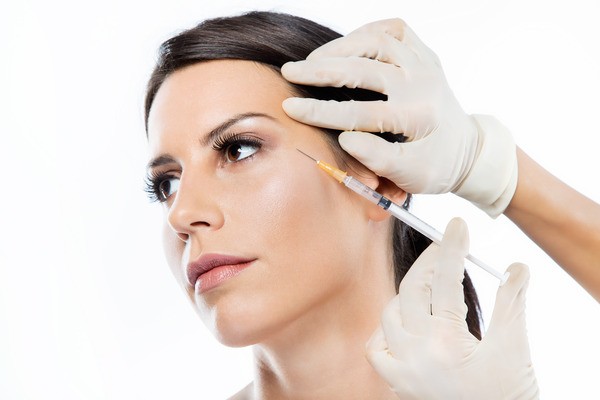
Latest Treatment For Acne Scar Removal
What is a scar?
The process of healing from wounds involves scarring. An acne scar can only be created when the dermis, the skin's deeper layer, is damaged.
There may not always be a scar if only the epidermis, the top layer of skin, is damaged. In the deeper layers of the skin, scars cause a structural change that is seen as a shift in the architecture of the usual surface features.
Not the colour of the skin has changed. Mucosal tissues and fetal tissues are capable of healing without leaving a scar. Having a deeper understanding of how and why this is achieved could improve the way surgical scars turn out.
What kinds of acne are there, and how do they appear?
There are many ways that acne can manifest. Blackheads and whiteheads are common, and they cure without much trouble. The sorts that can leave scars are the following:
- Papules: Papules are painful pink to red lumps on the skin.
- Pustules: Lesions filled with pus. They are red at the bottom and white or yellow at the top.
- Nodules: Solid lesions, nodules. Because they penetrate the skin more than papules and pustules, they are bigger and might pain more.
- Cysts: Deep within the skin are cysts.
Modern Treatments for Acne Scars
Treatments for acne scars are still exploring the least invasive ways to repair skin damage. In reality, dermatology aims to find a technique to assist in finding a remedy for acne before scarring takes place. But with the help of contemporary technological developments, physicians may now effectively repair acne scars throughout a 6–8-week treatment plan.
Micro-needling
To scar tissue and encourage the formation of new collagen, micro-needling similarly excises the skin like punch excisions. Due to the method's damage to the skin to encourage collagen creation, ice pick scarring requires micro needling as a type of treatment.
This acne scar therapy uses many tiny needles to penetrate the scar, generating several "channels" that enable collagen regeneration to be distributed uniformly over the scar tissue, allowing the skin to rise to smooth and even levels.
Laser Acne Treatments
In cases of more severe acne scarring, laser acne treatments are used. Before turning to laser acne treatments, dermatologists' top reasons are punch methods, chemical peeling, and medicinal retinoids.
With atrophic acne scarring, laser acne treatments are used more regularly. In comparison to ice pick scarring, deep tissue acne scarring, such as boxcars and rolling acne scars, is more likely to need laser acne treatments.
Atrophic acne scarring can be treated with two different types of laser treatment for acne scar removal. Which are:
1. Ablative Laser Treatment for Acne:
By melting the layers of skin that are showing scarring tissue, ablative laser treatment heals damaged scar tissue. To tighten collagen fibres in the deeper layers of the skin, this laser therapy abrades the outer skin layers. This reduces and evens out acne scars, resulting in a much flatter layer of skin.
2. Non-Ablative Laser Treatment for Acne:
Non-ablative lasers promote the growth of new collagen. This is a less intrusive acne laser treatment because it doesn't melt or remove any skin tissue. In the process of bringing the scar to the skin's surface and once more smoothing out the skin layer, the synthesis of new collagen helps to tighten the skin.
3. Chemical peels as Acne Scar Treatment
For skin types with high levels of germs, chemical peels use glycolic acid to help exfoliate the skin. This acne scar treatment removes the top layer of your skin and is used for hypertrophic and keloidal scars, which once more stimulate collagen growth in the surface layers, helping to tighten the outer layer and even out the skin, resulting in a flatter skin layer with less redness and soreness.
4. Microdermabrasion for Acne Scars
Microdermabrasion, a type of aesthetic skin care, is used as part of an acne scar plan to help reduce acne scarring. It removes dead skin cells from hair follicle cages by abrading the skin. Dead skin cells in the outer layers of the skin where acne scarring has developed are removed, which decreases pore blockages and bacteria on the face and allows a much cleaner and smoother skin profile.
Punch techniques for Acne Scars
For acne scars like ice-pick and boxcar, punch techniques are used.
1. Punch Excision
Punch excision specifically treats ice-pick acne scars by surgically removing the scar and closing the open lesion. The skin's outer layers are evened out and made smoother as a result.
2. Punch Elevation
Punch elevation targets the base of the scar, surgically removing it while leaving the sides of the scar in place, and is very effective for boxcar acne scars. In oToel out the skin surface, the base of the scar is "lifted" and reattached to the side scarring.
3. Punch Grafting
In cases of severe ice-pick acne scars, punch grafting is used. Skin is taken from another area of the body and used to seal the wound once it has been cleaned.
Consult with Dr V. S. Rathore, our specialist in Kolkata. Based on where your acne scars are on your skin, we advise laser treatment for acne scar removal in Kolkata. There are various treatments available for all types of acne scars, thus if you are concerned about your acne scar, the best course of action is to visit an acne scar removal specialist in Kolkata.
By booking an appointment at https://drvsrathore.com/, you can learn more about the cost of acne scar removal treatment in Kolkata without risking the worsening of the problem. To get in touch with us, give your information in the form provided on the website.
Visit Dr V S Rathore for more!







